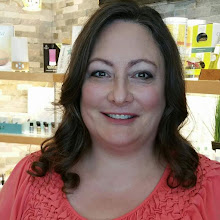I've been struggling to come up with something to write about that does not involve my hormones, my now-absent uterus, my ovaries, or even my husband and children. In wanting to write about my life as a woman, these are the things I've written about because these are the things on my mind. But I've been thinking a lot about the wide range of womanhood and womanliness.
I have several friends who have dealt with infertility--some choosing to adopt and some going through painful and emotionally agonizing years of infertility treatments of one kind or another. They are no less women for having not given birth to children or raised children. So when I write about my children, who I connect so closely with my own sense of being a woman, am I implying something about the womanhood of someone who has not had this experience?
I think about my husband. I have a good friend who is the person I vent to about husband stuff. Every "stupid husband" joke that comes around, we end up forwarding to each other. Having my husband is part of how I've become the woman I am--but I still felt like a woman before I met him. Today I found out that one of my hyster-sisters and facebook friends lost her husband unexpectedly. She is no less a woman for having been widowed. The mother of my daughter's friend is also widowed, and she notes on her facebook page that facebook doesn't have a relationship status for "widowed." When I write about my husband, then, am I implying anything about women without husbands?
I still have my ovaries, even though they're not very cooperative. For the past 30+ years, the rhythms of my hormones have helped define how I am a woman. My emotions, my bleeding, my pregnancies, my sexuality, and my hysterectomy have all been connected to what my ovaries have done. Is a woman who has been castrated (had her ovaries removed) any less a woman? There was a fascinating book I read once about the relationship between humans' awareness of time and a woman's cycles. When I write about ovaries and hormones, am I implying anything about women without them?
How do I write about what it means to me to be a woman without implying that I am speaking about all women or that women without my experiences are something other than woman? And what does it mean about a female I once knew who has now become legally and surgically a man?
What makes a woman? Is it strictly DNA? Is it the organs we're born with? Is it a set of experiences? Is it what we do with our lives? Is it simply saying, "I am a woman"?
Saturday, March 21, 2009
Subscribe to:
Post Comments (Atom)
Flashlight Worthy Book Lists
the newest lists of book recommendationsthe best book recommendations are found at Flashlight Worthy
add this widget to your blog

No comments:
Post a Comment